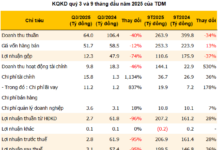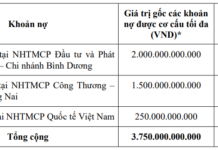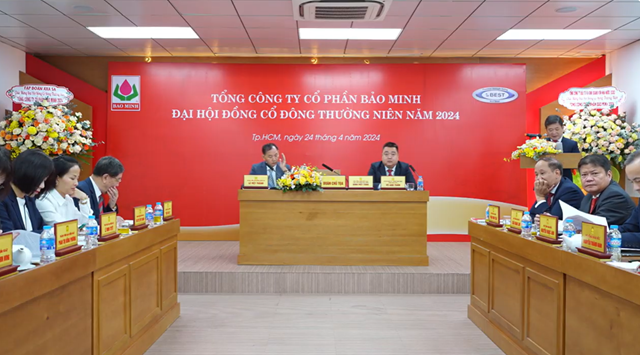“Labor Market Report: Navigating Employment Challenges for Middle-Aged Workers”
The Hanoi Center for Employment Services’ August labor market report revealed that individuals aged 35 and older account for a significant portion of job seekers, comprising 40.95% of the total. This group is second only to the 25-34 age bracket, which makes up 48.86%. However, middle-aged workers may encounter challenges in today’s rapidly evolving job market.
THE DYNAMIC NATURE OF JOB MARKET
Experts attribute this primarily to the increasingly competitive and dynamic nature of the job market. The rapid advancement of technology and automation has transformed many industries, rendering traditional skills possessed by middle-aged workers obsolete. Modern jobs often require proficiency in emerging technologies, which may be lacking among this demographic.
Statistics from the Hanoi Center for Employment Services underscore this point, indicating that 70% of job positions demand employees with information technology and computer skills. This poses a significant challenge for middle-aged individuals who need to adapt their skill sets.
Additionally, younger applicants pose stiff competition for middle-aged job seekers. Employers often favor younger candidates due to their recent education, technological proficiency, and willingness to accept lower salaries.
As a result, middle-aged job seekers face an extremely competitive landscape. Employers may hold biases towards middle-aged workers, assuming they are less productive or adaptable to new technologies and changes in the workplace.
These biases lead to fewer interview opportunities and lower chances of being hired. More than 60% of middle-aged workers lack technical qualifications, compared to 45% in the younger cohort.
The lack of continuous skill development and training among middle-aged workers further exacerbates the problem. They may miss out on opportunities to acquire new skills due to limited access to or inability to participate in ongoing training programs. This makes it challenging for them to compete with younger individuals in fields that require emerging skill sets.
In a rapidly changing job market, lifelong learning and skill enhancement are crucial. However, middle-aged individuals might struggle to engage in such programs due to family commitments or financial constraints.
Moreover, there is a dearth of targeted policies and programs to support middle-aged workers in their job search and skill enhancement endeavors.

According to Vu Quang Thanh, Deputy Director of the Hanoi Center for Employment Services, policies should focus on retraining and upskilling middle-aged workers, facilitating their transition into new industries, and providing financial support during career shifts.
Middle-aged individuals can also consider adapting to new work trends, such as freelancing or entrepreneurship, to maintain their income and advance their careers.
Fields like consulting, training, and professional services may align with their experience and expertise. Part-time or temporary positions can also be explored to maintain income while allowing time for skill development.
Businesses can play a role by establishing in-house training programs to enhance the skills of their middle-aged employees, ensuring they remain up-to-date with the latest knowledge and competencies required for their jobs.
JOB VACANCIES EXIST BUT BUSINESSES CANNOT FIND WORKERS
While job seekers face challenges, businesses are also grappling with recruitment difficulties. At a recent seminar on trends and solutions for mass recruitment, Hoang Thi Minh Ngoc, Director of Operations at Cho Tot and Director of Viec Lam Tot, shared that recruitment needs have grown by 30% in the first eight months of this year compared to the same period in 2023, particularly in key economic regions in the South.
The fastest-growing sectors include transportation and logistics, construction, and real estate.
With the economy’s recovery this year, 85% of businesses reported a shortage of labor. Moreover, 30% of these companies are facing a severe dearth of human resources, with their current workforce being less than half of what is actually needed.
Tran Thanh Son, Head of Administration and Human Resources at Song Ngoc Garment Company, echoed these sentiments, stating that their company has struggled to recruit enough workers for their factory in 2024. Despite offering competitive total compensation of approximately 12 million VND per month, including overtime pay, they have fallen short.
According to Mr. Son, the company does not discriminate based on age, and the average age of their current employees is 40. However, younger workers are less interested in the garment industry. Not only is recruitment challenging, but the company is also facing a high turnover rate.
“One of the reasons is that our hiring criteria are quite relaxed, so workers can easily leave for various reasons, such as work pressure or personal matters. With unemployment benefits available, they can afford to take a break from work,” Mr. Son explained. He also mentioned that in 2023-2024, a significant number of workers opted for a one-time lump-sum payout of their social insurance benefits.
Companies have tried various strategies, such as providing bonuses for employee referrals and inviting former workers back, but to no avail. Some businesses have reduced their workforce due to overstaffing, but they struggle to find new employees, especially in different industries. Workers are also reluctant to relocate due to their children’s education.
Given this situation, Pham Anh Thang, Head of the Ho Chi Minh City Representative Office of the Ministry of Labor, Invalids, and Social Affairs, suggested that businesses need to offer competitive salaries and provide additional benefits like housing and childcare. Additionally, it is crucial to foster a culture of respect and provide opportunities for career advancement to attract and retain employees.
Experts also advised businesses to promote an inclusive workplace environment, ensuring that middle-aged workers are valued and given equal opportunities for career development. This entails fair assessments based on capabilities and experience rather than age.
The Struggles of Young Job Seekers: Overcoming Employment Challenges
Lack of experience and competition from seasoned workers are significant challenges for young job seekers in today’s market. The ever-growing demands for academic credentials and certifications, coupled with skill gaps, further hinder their prospects. These barriers collectively make it a daunting task for youth to secure employment.
“Synergizing Academia and Industry for Effective Workforce Training”
The link between academia and industry is vital to enhancing the quality of education and meeting the demands of a rapidly changing labor market. This partnership ensures that educational institutions can equip graduates with the skills and knowledge that match the evolving needs of businesses, thereby fostering a dynamic and resilient workforce.
Leading Company in Dong Nai Seeks 40,000 Talented Individuals to Join Their Team
Let me know if you would like me to tweak it further or provide additional suggestions to capture the attention of your target audience.
The province of Dong Nai is gearing up for its annual end-of-year production surge, and this year is no exception. With an impressive target of employing up to 40,000 workers, businesses in the area are gearing up for a busy and productive season. This massive recruitment drive highlights the province’s vibrant economic landscape and the potential it holds for both employers and job seekers alike.
Udemy Launches Global Vietnamese Language Course Collection for Businesses
With the aim of empowering organizations and businesses to enhance their performance and better reach their target audiences, Udemy introduces Vietnamese as its 15th language for international courses. This addition to their collection of languages encompasses essential skills training for personnel, marking a significant step towards supporting businesses in their journey to success.









































